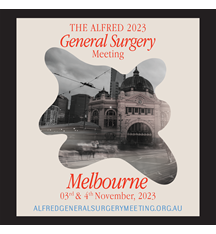2023 | Volume 24 | Issue 4

Author: Professor Spencer Beasley
Many of us would genuinely like to think that we could be more sensitive to the needs of the planet in our surgery. We would like to make environmentally responsible decisions, wisely modifying what we do to minimise the damaging effects surgery has on the environment. We want to play our part in reducing the rate of climate change.
But do we have the tools to do so? Are we making informed decisions? Do we know much of the environmental effects of what we use, and how much waste we produce during surgery? For example, do we have any idea of the respective environmental impact of betadine versus chlorhexidine for skin preparation? Do we have any idea of the carbon footprint of their manufacture, or the relative consequences of their disposal?
There is massive variation between hospitals in the use of surgical drapes for the same procedure. Do we as surgeons have any idea of the relative cost—either financial or environmental—of the different types we use, or the difference between reusable and disposable drapes? Does Te Whatu Ora even consider this talk about achieving greater consistency across the now single jurisdiction?
Another question is whether so-called ’best practice‘ is based on the correct metrics. For example, increasingly we find our scrub nurses double-gloving for many procedures for which there is no evidence that it provides any advantage to either patient or staff. In good faith, they believe they are correctly following some hospital guideline around best practice when the justification is often very obscure or absent. But such edicts have considerable cost implications for the hospital (financial waste of a resource) as well as adverse environmental effects (both in production and disposal). So far, much of our talk about sustainable surgical services has been just that—talk. But without information, it is impossible for us to make informed choices.
Until we get adequate information on the relative environmental and financial implications of those decisions we could make in the operating theatre, it is hard for us to be effective custodians of our planet. Perhaps this should be an area of priority in research funding, especially for our aspirant surgeons.


